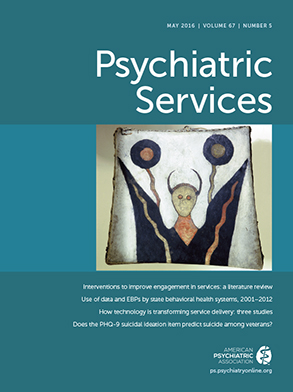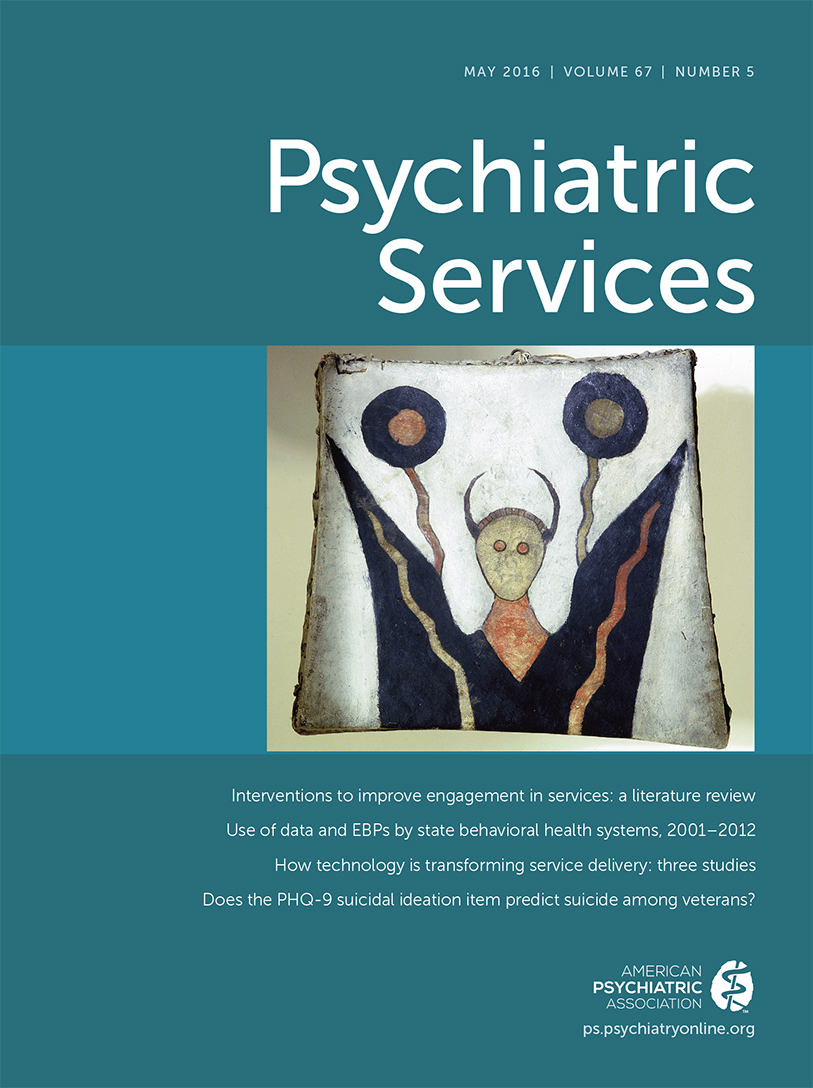TO THE EDITOR: For the past 15 years, Hong Kong has been reducing the number of psychiatric beds and developing community mental health services. However, the effect on admission rates is unknown. This study examined trends in psychiatric admission rates in relation to the number of psychiatric beds.
The study was a retrospective analysis of data (1999 to 2014) from a population-based registry. Data on the total number of psychiatric admissions (involuntary, voluntary, and informal) and psychiatric beds were obtained from the Hospital Authority register through the Clinical Data Analysis and Reporting System (
1). Involuntary and voluntary admissions refer to patients admitted under the Mental Health Ordinance. Informal admissions refer to patients admitted voluntarily but not under the ordinance; they may leave at any time that they request a discharge. Pearson correlation analysis was used to investigate associations between annual changes in the number of psychiatric beds and admission rates, with a time lag of zero, one, or two years.
Between 1999 and 2014, the overall admission rate increased by 32.0%, from 175.2 to 231.2 per 100,000 population per year, and the total number of psychiatric beds in Hong Kong decreased by 39.8%, from 93.1 to 56.0 per 100,000 population. During the same period, the involuntary admission rate increased by 5.4%, from 36.8 to 38.8 per 100,000 population per year. The voluntary admission rate increased by 68.4%, from 33.9 to 57.1 per 100,000 population per year. The informal admission rate increased by 29.3%, from 104.6 to 135.3 per 100,000 population per year. Overall, the number of admissions per psychiatric bed increased by 2.2-fold. No significant association was found between changes in the number of psychiatric beds and admission rates when a time lag of zero, one, or two years was introduced.
The relatively small change in the involuntary admission rate may suggest the effect of community mental health services (
2), which focus on patients who require monitoring and supervision in the community. However, the marked increase in voluntary and informal admissions suggests that a large number of patients cannot be managed by psychiatric outpatient services. Currently, primary care doctors receive little training and support to manage patients with mental illness. Therefore, psychiatric outpatient services are mostly supported by the Hospital Authority. In addition, high consultation fees of private psychiatrists and the need for long-term care have made public psychiatric services the only choice for most patients.
Chinese people with mental illness and their family members may delay seeking help because of stigma. When the condition worsens to the extent that family members cannot handle it, patients are admitted to a hospital because outpatient clinics are overcrowded and clinicians offer only brief consultations (
3). Reductions in the number of psychiatric beds may have helped mobilize resources and manpower to community-based services; however, this may have led to a shortage of acute beds and problems of overcrowding. Simultaneous development of community-based services, including public education, training of primary care professionals, and expansion of outpatient psychiatric care, are all needed. In countries that have a hospital-based care system, provision of psychiatric beds must be carefully planned to avoid such complications.

